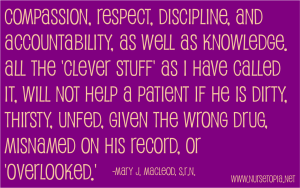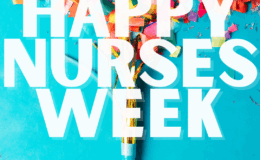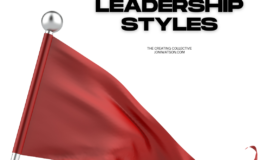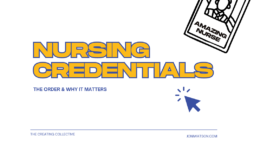Mary J. MacLeod, S.R.N., author of Call the Nurse, received her nursing training in the post-war United Kingdom. I have never had a guest post within the nearly three years of Nursetopia for several reasons. However, after reading Call the Nurse (which you should absolutey read!), I wanted to personally learn more from MacLeod; I wanted to hear her voice on nursing and her historical perspective of nursing. Below is what she shared. Enjoy!
My training began in 1949/50 and would be unrecognisable to the nurse of the 21st century. I imagine things will have changed similarly in those 60 years in the USA, but you will all know more about that than I do. (When I was in school, some of our examination questions began ‘compare and contrast….etc.’ Well, I think there is going to be more contrast than comparison in this little piece.)
Most young women, aspiring to take up nursing, attend college, obtain degrees or other qualifications and appear on the wards apparently fully fledged and very knowledgeable. And there is much to know! Ever increasing numbers of new drugs, advanced and inexorably advancing technology for diagnosis and treatment, the ability to take blood, give transfusions, tailor diets to conditions, iterpret X-rays, scans and so on. In many cases, there seems to be an overlap into the doctor’s world. One could say, rather cynically that nurses are paid less than doctors so why not have them do some of their tasks?
 And among all this ‘clever stuff,’ where is the actual care of the patient, I wonder. Washing him, feeding him, making sure that he has water to drink, a clean and comfortable bed, any wounds dressed, drugs administered at the right time and properly checked, reassurances given, his record and plan for his ongoing care kept up-to-date so that nothing is ‘overlooked’ – the modern word for ‘forgotten.’
And among all this ‘clever stuff,’ where is the actual care of the patient, I wonder. Washing him, feeding him, making sure that he has water to drink, a clean and comfortable bed, any wounds dressed, drugs administered at the right time and properly checked, reassurances given, his record and plan for his ongoing care kept up-to-date so that nothing is ‘overlooked’ – the modern word for ‘forgotten.’
What am I really talking about here? Compassion, respect, discipline, and accountability, as well as knowledge. All the ‘clever stuff’ as I have called it, will not help a patient if he is dirty, thirsty, unfed, given the wrong drug, misnamed on his record, or ‘overlooked.’
Back to 1950. Our training was much less technical because, for instance, there were fewer drugs – penicillin and streptomycin were the only antibiotics available, less intricate surgery was done – heart surgery was in its infancy, brain surgery yet to come, and many cancers were considered inoperable. We had to rely on good nursing care to cure or alleviate many conditions so our training was tailored to that end.
We began training straight from school at 18. We were not the sophisticated young women of today with their own flats, their confidence and self-esteem, their concept of ‘rights’ – some even married. We came straight from home and found ourselves plunged immediately onto the wards. We were housed in a Nurses’ Hostel in tiny, unheated bedrooms and had to be in by 11 PM. We often worked 50 to 60 hours in a week, but we didn’t notice. (In fact, I have only just worked it out!) We were paid 5£ [~$7.68 current US] per month and no overtime. We expected nothing more.
Our uniform was supplied – starched dresses (how they rubbed), aprons, and caps. Hair had to be ‘off the collar,’ no jewelry, very short nails, regulation rubber-soled shoes. It was like boarding school – but with patients! We were roused at 5:30 AM by the housekeeper’s booming voice, ready to start at 6:30 AM. Late comers were sent straight to Matron! Our working day would include making beds, ‘doing backs’ to prevent bedsores, washing, feeding, injections, temperatures, B.P.s, prepping for ‘ops,’ dressing wounds, etc., but learning all the time. We had 30 or 40 beds in one huge room with beds down each side. No ‘disposables’ then like syringes, surgical receptacles, bedpans, etc. All these things were reusable and so had to be sterilized constantly. Cleanliness was paramount and there were fewer hospital-born infections then than now!
Every year, we had two months of college classes where we soaked up the more technical stuff, took, and hopefully passed, examinations. Most of all on the wards and in college, we learned compassion (if we did not already feel it), respect, discipline, and accountability. We did not talk of career opportunities or personal advancement. The nurse was there to NURSE with no thought for herself. Perhaps such attitudes were extreme, but, as always, the pendulum has swung the other way now, and it seems to be all about the nurse: her conditions of work, her pay, etc. But I hope most aspiring young women still feel a genuine urge to care for the young, the sick, and the old. (I won’t say ‘a calling’ as this implies a religious motivation – just a humane concern is all that is needed.)
My down-to-earth training stood me in good stead in the 70s when I was a district nurse on a remote Scottish island. Conversely, a more technical training is needed for the forefront of medicine, surgery and other specialised areas of care. I think we can combine both because that is the word – CARE.





